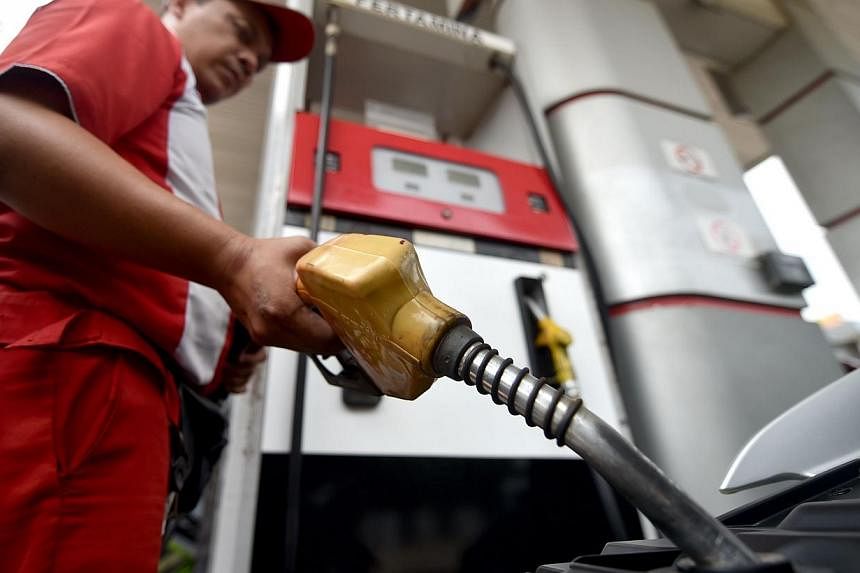JAKARTA (Reuters) - The Indonesian government will reduce its 2015 fuel subsidy costs by nearly 95 per cent, to as little as 1 per cent of total expenditures, as it ditches gasoline subsidies in one of the biggest reforms to the country's energy subsidies in decades.
From midnight tonight, the government will stop subsidising gasoline prices altogether and set the price of gasoline according to global oil markets, officials said on Wednesday.
"Prices will be evaluated every month," said Coordinating Economic Minister Sofyan Djalil, adding that since world oil prices fell, the government felt there was no need for gasoline subsidies.
The government will still provide a fixed subsidy of 1,000 rupiah (11 Singapore cents) per litre for diesel, used commonly on public transport buses and by Indonesia's many fishermen, but the price will also rise and fall in line with market prices on a monthly basis, according to the officials.
Analysts said the decision would drastically cut government costs.
"This is a big deal ... Even with the retention of some subsidy for diesel, the amount that the administration has to fork out for subsidies in 2015 has come down massively," said Wellian Wiranto of OCBC bank in a statement. "Originally slated to cost 276 trillion rupiah (S$29.3 billion or 13.5 percent of expenditure), subsidies would ... now go down to a mere 17 trillion rupiah," Wiranto said.
That would be just 1 percent of total expenditures, raising the prospect that Indonesia could reduce its budget deficit as a result, OCBC said.
Oil prices have fallen by over 50 percent this year to their lowest levels in over five years as supplies rise while demand is cooling.
The decline in global prices means that even without subsidies, Indonesians will pay 10.6 percent less for gasoline, at 7,600 rupiah per litre versus 8,500 rupiah currently, according to OCBC.

